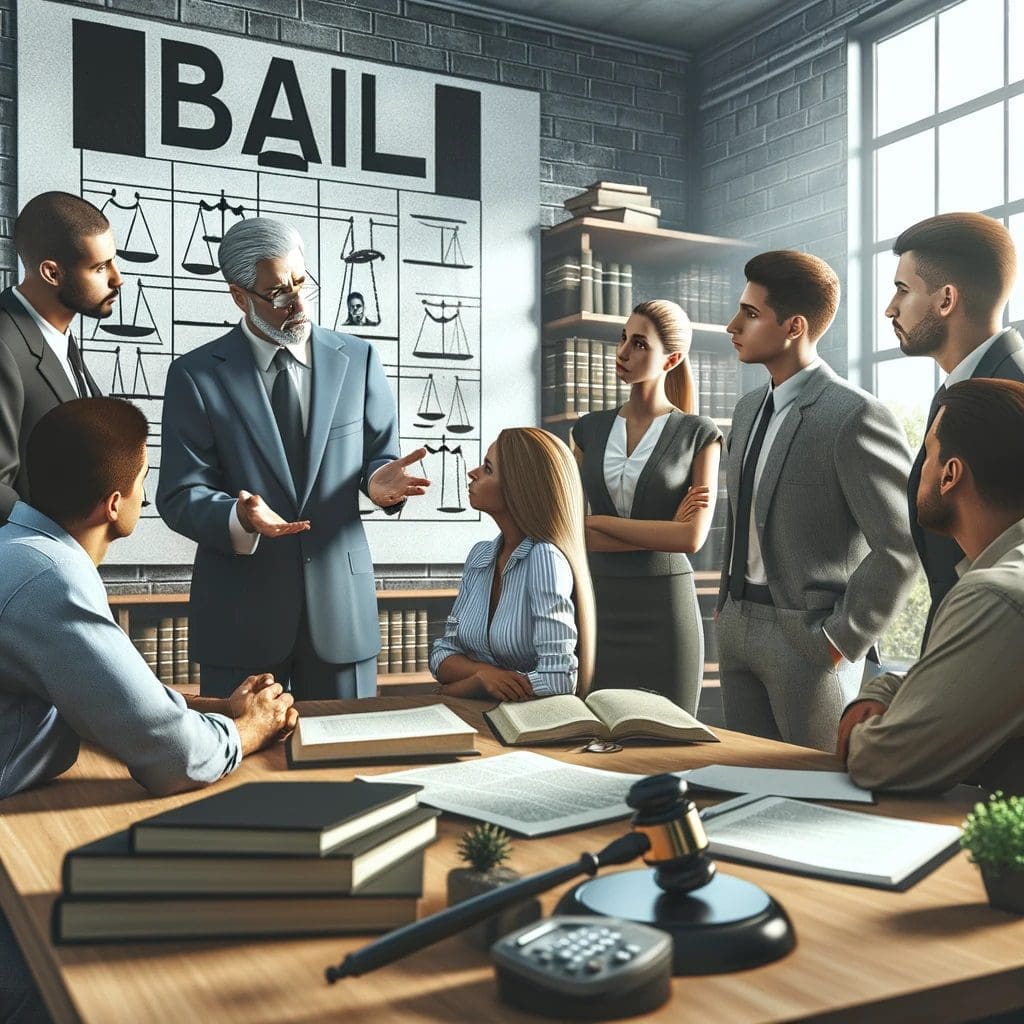Can I Get Out of Jail Without Money?
Navigating the bail process can be a daunting experience for many. Understanding how bail bonds work is crucial for those who find themselves or their loved ones in need of temporary release from custody. This article aims to demystify the process, offering essential insights into how bail functions in the criminal justice system.
The Basics of Bail
At its core, bail is a financial arrangement that a bail bonding agency makes on behalf of the accused. This arrangement ensures the court that the defendant will appear in court for their scheduled hearing. The concept of bail bonds is rooted in the principle of innocent until proven guilty, allowing for temporary release while awaiting trial.
Types of Bail Bonds
Understanding different types of bail bonds is important. The most common types include surety bonds, where a bail bondsman acts as a guarantor, and cash bonds, which require the full bail amount in cash. In some cases, property bonds and personal recognizance releases are also options, depending on the nature of the case and jurisdiction.
The Role of Bail Bondsmen
Bail bondsmen play a pivotal role in the bail process. They provide a bail bond service, ensuring the defendant’s appearance in court in exchange for a fee, typically a percentage of the bail amount. Choosing a reputable bail bond agency is crucial, as they become a crucial part of the legal process.
Cost of Bail Bonds
The cost of securing a bail bond varies. It typically includes a non-refundable premium, usually 10% of the total bail amount. Additional fees may also apply. It’s essential to understand these costs upfront to make informed decisions about securing bail.
Legal Considerations in the Bail Process
Legal considerations play a critical role in determining bail. Factors such as the severity of the alleged offense, the defendant’s criminal history, and the risk of flight are taken into account. In many jurisdictions, bail schedules offer predetermined bail amounts for specific crimes. However, a judge ultimately has discretion in setting or denying bail based on the circumstances.
Impact of Bail on Defendants and Families
The impact of bail on defendants and their families cannot be overstated. High bail amounts can pose significant financial burdens, leading to a reliance on bail bond services. The emotional and psychological stress of the process, combined with potential employment disruptions, can have long-term repercussions on families and communities.
Navigating the Bail System
Navigating the bail system requires understanding one’s rights and options. Seeking the advice of legal counsel can be beneficial. Additionally, it’s important to research and select a credible bail bondsman or bail bond agency. These professionals can guide defendants and families through the bail process, offering support and advice.
Alternatives to Traditional Bail Bonds
In some cases, alternatives to traditional bail bonds exist, such as own recognizance release, where defendants are released based on a promise to appear in court. Pretrial services programs also offer alternatives, focusing on assessing a defendant’s risk and providing supervision or monitoring as needed.
The Future of Bail Reform
Bail reform is a topic of ongoing legal debate. Critics argue that the current system disproportionately affects low-income individuals and advocates for reforms that emphasize risk assessment over financial ability. The future of bail may see significant changes, emphasizing fairness and equality in the criminal justice system.
The Role of Technology in Modern Bail Processes
Advancements in technology have significantly impacted the bail process. Electronic monitoring and GPS tracking are becoming more prevalent as alternatives to traditional jail time. These technologies allow for better tracking of defendants and reduce overcrowding in jails. Additionally, online platforms have emerged, making it easier to arrange for bail bonds and navigate legal procedures remotely.
Community Resources and Support Systems
Community resources play a vital role in supporting individuals through the bail process. Non-profit organizations and community groups often provide guidance, financial assistance, and counseling services. These support systems are crucial in helping individuals and families manage the stress and complications associated with legal proceedings.
Educating the Public on Bail Options
Public education on bail and related legal rights is essential. Many people are unaware of their rights or the bail process until they are directly involved. Educational campaigns and resources provided by legal aid societies and community groups can empower individuals to make informed decisions.
Challenges and Criticisms of the Bail System
The current bail system faces numerous challenges and criticisms. Concerns include the inequity of the system, where wealthier defendants can afford bail while others cannot, leading to disparities in the justice system. Additionally, there is ongoing debate about the fairness of the bail system and its impact on recidivism rates and community safety.
Conclusion
The bail system, an integral part of the criminal justice process, requires careful navigation and understanding. With ongoing debates and potential reforms, it remains a dynamic and evolving aspect of legal proceedings. Individuals and families dealing with bail must remain informed and proactive, seeking reliable resources and professional guidance to navigate this complex system effectively.
- California Bail and Bond Laws: A Comprehensive Guide (2024)
- How to Navigate the Bail Bond Process in California Criminal Law
- Understanding Bail: How It Works and What You Need to Know
- Understanding Bail and Pretrial Release Options in California
- Bail, Bonds, and Relevant Legal Concerns | Criminal Law Center – Justia














